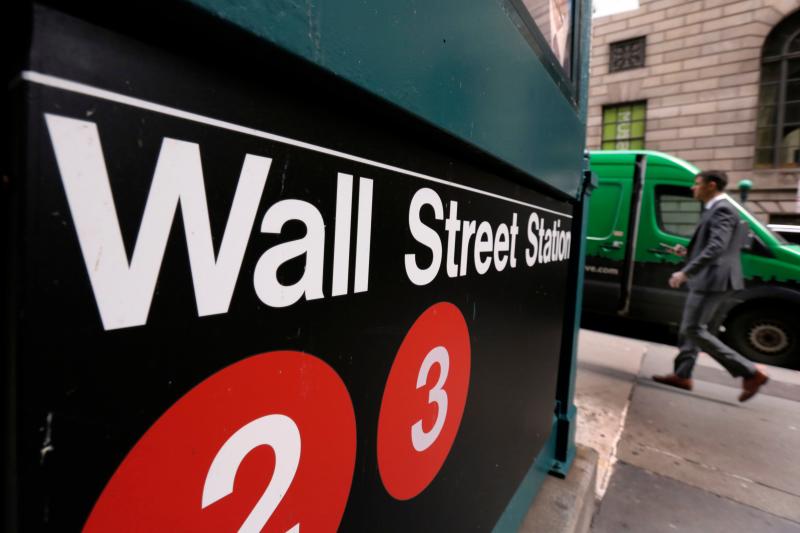By Noreen Burke
Investing.com - After a week that saw global stock markets crash with the coronavirus outbreak ending a years-long bull run global central banks will be under more pressure to act in order to maintain the flow of support for economies and for those most hard hit by the virus. The Federal Reserve is expected to slash its target rate to near zero on Wednesday, after a rare emergency rate cut at the start of the month. Other central banks, including in Japan, Switzerland and Russia are also due to hold policy meetings this week. Wall Street will be bracing for more alarming headlines concerning the virus' spread in the U.S. and European Union finance ministers are to discuss the impact of the virus on Monday. Meanwhile, economic data from the U.S., China and the eurozone will be in focus. Here’s what you need to know to start your week.
- Just how deep will the Fed cut?
Ahead of the Fed’s upcoming rate setting meeting on Wednesday the main question is just how deeply it will cut interest rates and what other measures in the form of quantitative or credit easing might be announced.
The Fed is seen cutting rates by as much as three quarters of a percentage point, with financial markets predicting policymakers will be forced to cut to zero by April to boost the economy.
The Fed will also update its forecasts for economic growth, and this will give investors an insight into whether any officials foresee a recession, and if so, how deep and how long it might be. The range of forecasts, which are anonymous, will also offer clues on how divided policymakers are.
- Central bank headaches
On Thursday the Bank of Japan and the Swiss National Bank are to hold rate setting meetings, just hours after the Fed decision is announced.
The SNB will have to decide whether its regular interventions to push down the Swiss franc are still tenable without lowering its interest rates even further.
The BOJ is expected to ease policy to cushion the economic fallout from the coronavirus and shore up business confidence in the world's third-largest economy. In conjunction, the government is working on a new spending package of up to 20 trillion yen ($190 billion), as it tries to fend off a recession.
Russia, so far considered one of the better placed emerging economies due to its solid central banking credentials, has suddenly found itself grappling with a $30-per-barrel fall in oil prices, which has sent the ruble reeling. Its central bank meets on Friday.
- Heightened market volatility set to continue
With one of Wall Street's wildest weeks in recent memory now in the history books, investors are bracing for more uncertainty and big market swings ahead.
Overwhelmingly, caution remains the watchword for investors and analysts reeling from a week that saw all three U.S. exchanges confirm bear markets, oil prices plummet to multiyear lows and wild fluctuations in bond yields and currencies.
U.S. President Donald Trump declared a national emergency on Friday. The U.S. has recorded more than 2,000 cases and 50 deaths but has been criticized for slow testing.
Investors are hoping actions by the Fed will help to soothe the roiled stock market, but rate cuts may not help equities. The S&P 500 ended up falling 2.8% on March 3 despite the Fed's surprise half-percentage point cut, which boosted sentiment but also led investors to speculate on what other actions the Fed could take.
Whatever actions the Fed takes, some investors said they are ultimately secondary to the responses of the world's governments.
"While we think central bank policy is important, we think the fiscal is much more important at this stage," said Eric Freedman, chief investment officer at U.S. Bank Wealth Management.
- European Union finance ministers to hold talks
European Union finance ministers will meet on Monday to discuss the impact of the coronavirus and measures to restart their economies, but by video call rather than in person after France and Spain joined Italy in imposing lockdowns on tens of millions of people.
Mario Centeno, the chair of the "Eurogroup" of euro zone finance ministers, said in a tweet late on Saturday that the sense of urgency and coordinated effort was unprecedented.
A focus of discussions is likely to be the European Commission plan unveiled on Friday to boost spending on sectors of the economy hit by the coronavirus and to let EU nations run bigger deficits to help cushion businesses.
The EU executive, which predicted the outbreak would lead to a recession in the bloc this year, wants to channel 37 billion euros ($41 billion) of existing EU funds to companies in greatest need and take a lenient approach to state aid rules.
Monday will also see a G7 video conference call where French President Emmanuel Macron will continue to call for a coordinated fiscal response.
- Economic data
On Monday, China is to release data on industrial production, retail sales and fixed asset investment for February, which will give investors an insight into damage the coronavirus lockdown inflicted on the world’s second-largest economy.
In the U.S. figures on industrial production and retail sales for last month will indicate how the economy was doing as the coronavirus outbreak emerged, while manufacturing indexes and housing sector data may point to effects from the virus.
In the eurozone, Tuesday's Germany’s ZEW investor confidence indicator is expected to decline sharply amid major economic disruption caused by the pandemic to one of the world’s most trade-dependent economies.
--Reuters contributed to this report
